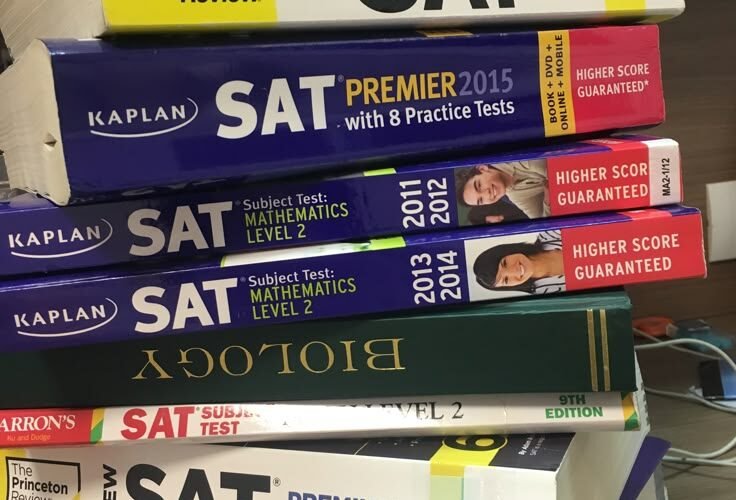SAT Prep Platforms: Comprehensive Review

The SAT remains one of the most important standardized tests for college-bound students in the United States. Despite the growing number of test-optional schools, many competitive institutions still consider SAT scores as a key factor in admissions. As a result, students and parents continue to seek effective preparation strategies to maximize scores. The market offers countless SAT prep platforms, each claiming to deliver superior results. This article reviews several top-performing SAT prep platforms, compares their features, and helps students choose the best fit based on learning style, budget, and performance goals.
1. Khan Academy: Best Free SAT Prep Option
Khan Academy offers an official SAT prep platform in partnership with the College Board, the organization behind the SAT. The platform provides a comprehensive suite of resources for free, making it accessible to all students.
Features and Strengths:
- Tailored study plans based on diagnostic tests or previous PSAT/SAT scores.
- Full-length practice tests that mirror the official SAT experience.
- Detailed feedback and step-by-step explanations for each question.
- Video tutorials that explain key concepts across math, reading, and writing.
Who Should Use It:
Students who prefer self-paced learning and want a budget-friendly prep option will benefit the most. Khan Academy also works well for those who already have some foundational knowledge and need guided practice.
Limitations:
While comprehensive, Khan Academy lacks personalized tutoring or live instruction. Students who need one-on-one support may need additional resources.
2. Princeton Review: Best for Score Improvement Guarantees
Princeton Review offers one of the most robust SAT prep programs, with an emphasis on score improvement. Their “1400+” and “1500+” guarantee courses cater to ambitious students targeting top colleges.
Features and Strengths:
- Live online and in-person classes taught by expert instructors.
- Customizable study plans with adaptive learning algorithms.
- Practice drills, full-length tests, and instant score reports.
- 24/7 on-demand tutoring in higher-tier plans.
Who Should Use It:
Students who thrive under structured schedules and want measurable results will appreciate this platform. Those aiming for Ivy League or highly selective schools can benefit from the “1500+” course.
Limitations:
The cost can be a barrier. Some courses range from $899 to over $1,800, depending on the package.
3. Kaplan: Best for Flexibility and Course Variety
Kaplan offers a diverse array of SAT prep options—from on-demand videos to live classes and private tutoring. The platform balances affordability with flexibility.
Features and Strengths:
- Multiple learning formats: self-paced, live online, and in-person.
- Smart Reports for tracking progress and targeting weak areas.
- Mobile app for practice on the go.
- Official test day experience via proctored practice exams.
Who Should Use It:
Kaplan suits students who want flexibility in scheduling and learning formats. It also benefits students who study better through video content and need frequent practice.
Limitations:
The self-paced program might feel overwhelming without instructor guidance. Pricing also varies and can climb with add-ons like tutoring sessions.
4. PrepScholar: Best for Customization and Analytics
PrepScholar delivers a highly personalized online SAT prep program that adapts to each student’s strengths and weaknesses. Founded by Harvard grads, the platform uses an algorithmic approach to learning.
Features and Strengths:
- Diagnostic quizzes to determine starting points.
- Weekly study plans tailored to individual needs.
- Over 7,000 practice questions and 10 full-length tests.
- Email reminders and progress updates for accountability.
Who Should Use It:
Students who prefer guided self-study and appreciate detailed analytics will find value in PrepScholar. It works especially well for independent learners seeking to target specific score areas.
Limitations:
Lack of live instruction may hinder students who learn better through interaction. Also, despite automation, some students find the interface slightly outdated.
5. Magoosh: Best for Budget-Friendly Premium Prep
Magoosh combines affordability with high-quality content. Their online platform focuses on delivering video lessons, practice questions, and email support.
Features and Strengths:
- 1,750+ practice questions and three full-length tests.
- Detailed explanations for each answer.
- Score predictor tool based on performance.
- 7-day money-back guarantee.
Who Should Use It:
Magoosh fits budget-conscious students who want more than what free platforms offer. It also suits learners who like flexible, on-demand study without time constraints.
Limitations:
No live classes or human tutors, which may limit deeper understanding for some learners. Practice test volume also falls short compared to competitors.
6. Testive: Best for Hybrid Learning
Testive blends technology and human coaching into a unique hybrid model. Students receive a personalized online curriculum and weekly check-ins with a coach.
Features and Strengths:
- One-on-one coaching sessions for goal-setting and accountability.
- Online dashboard with real-time progress tracking.
- Adaptive question difficulty based on student performance.
Who Should Use It:
Students who need motivation and support without giving up self-paced study will thrive. Parents also appreciate regular updates on student progress.
Limitations:
The coaching plan carries a premium price tag. It may not suit students who prefer group learning environments.
7. CollegeVine: Best for Holistic College Prep
While not strictly a test prep company, CollegeVine includes SAT prep as part of a broader college admissions strategy. Students gain access to academic advisors, essay support, and test planning.
Features and Strengths:
- Strategic test planning based on target schools.
- SAT prep included in multi-service packages.
- Essay review, extracurricular guidance, and admissions coaching.
Who Should Use It:
Students looking for comprehensive admissions support will benefit. CollegeVine works well for juniors and seniors beginning the college application journey.
Limitations:
Not ideal for students focused solely on test prep. The bundled services make it more expensive than standalone prep platforms.
Choosing the Right Platform
Students must evaluate their learning styles, schedule availability, and budget before choosing an SAT prep platform. Some may thrive with free, self-guided platforms like Khan Academy. Others might require live classes, test simulations, and one-on-one tutoring from platforms like Princeton Review or Testive.
Here are some questions to help with the decision:
- Do you need accountability or self-paced learning?
- Is a guaranteed score improvement important to you?
- What score are you aiming for?
- Do you prefer live instruction, recorded videos, or reading-based learning?
- What can you realistically afford?
Final Thoughts
No single SAT prep platform fits everyone. Each offers unique benefits, and choosing the right one depends on individual learning habits and college goals. Students should start by taking a diagnostic test, identifying weak areas, and matching their needs to the platform’s strengths. With the right prep tools and consistent practice, students can boost their SAT scores and improve their college prospects.













